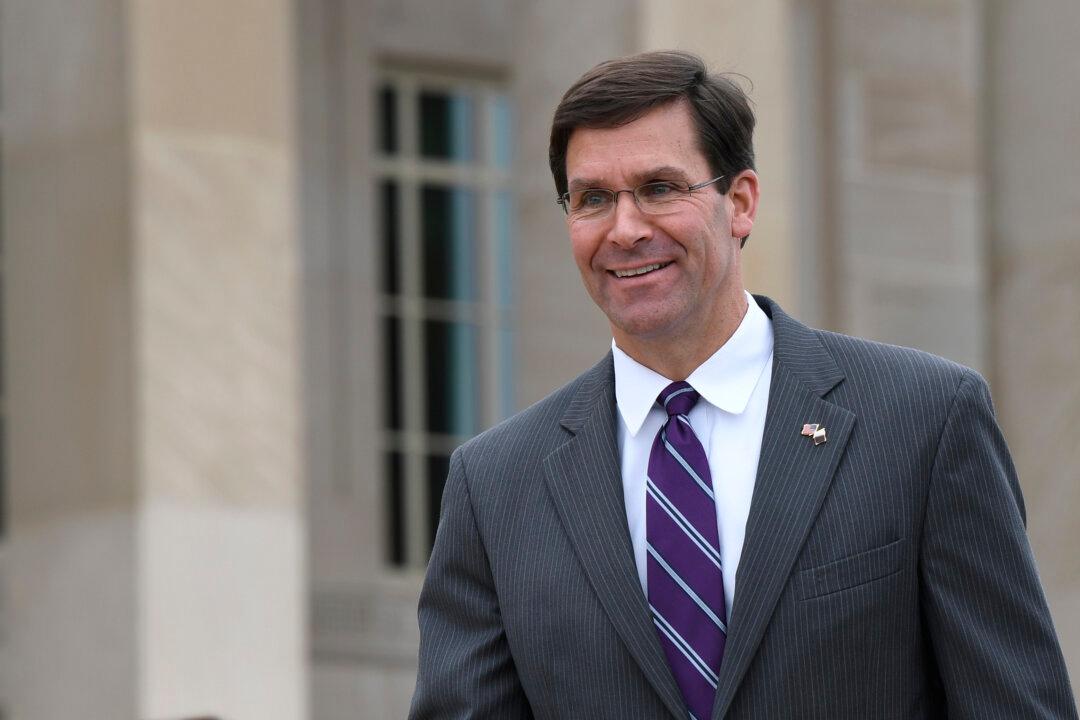WASHINGTON—President Donald Trump asked the Senate on July 15 to confirm Mark Esper as the successor to former Defense Secretary Jim Mattis, who resigned in December 2018.
The moment the nomination was received by the Senate on July 15, Esper was required to step out of his role as acting defense secretary—a job he has held since June—until he is confirmed as the permanent secretary. He reverted to his previous position of Army secretary.





